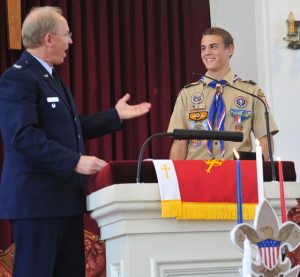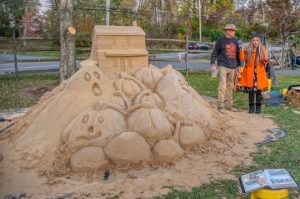Funny how facing death head on can be a celebration of life.
Recently, I saw the Japanese movie, Departures, where a young man, Daigo
Kobayashi, newly married, finds the symphony in which he is a cellist has become
defunct. Unable to land another position as a musician, he returns to his home
town. The work he reluctantly agrees to perform there is that of the preparer
of corpses prior to cremation.
Daigo’s ambivalence and his apprehension, however, slowly
transform. He becomes a conduit for the deceased and the grieving family and
friends to make the passage from life to death and to whatever is beyond. He,
in ritual ceremony, with the mourners witnessing, prepares the body with a
contemplative gentleness and loving compassion.
The film pendulates between death and life and its
bittersweet charge. Between death ceremonies, Daigo plays the cello soulfully
in a land where snow geese fly above rugged mountains.
In Departures, we vicariously face loss, abandonment, broken
dreams and limitations not with rancor and resentment, but with deep grace. In
each ceremony, we feel Daigo’s gentle caress of a lifeless face, and in that
touch, a memory of life is reborn. The sense pervades that life in its
fragility needs quiet honoring even, if not especially, in death.
Perhaps, it is not so ironic that I should view Departures
on the day of U.S. Sen. Ted Kennedy’s own departure, i.e., funeral. Would that
I could metaphoricaly be like the young ceremonialist of the film and guide my
reader to a new relationship with the deceased, despite any political
leanings—to see the larger picture of what is important in both death and life:
a connection of care.
Kennedy was a man who deeply cared for others. My father
used to say “your virture is your vice”. Or perhaps instead it is in the
redemption of our vices that we find our virtue. Kennedy appeared to have had
the courage for that redemptive transformation.
In a National Pulic Radio interview, I heard a father of a
soldier killed in Iraq talk about his relationship with Sen. Kennedy. He
remarked that he had always been a Republican but that it was Sen. Kennedy who
came to his aid after his son died. His son, along with army vehicle, lacked
protective armor. When the father approached Kennedy about this, the senator
went into action and got the funding for this armor passed. However, the father
wanted to make it clear that Kennedy’s care went beyond the legislative.
Kennedy came to Arlington Cemetery to be with this man and his family when he
found they would be visiting there. No one knew, there was no PR, just quiet
presence. The interviewer queried, “So what did you learn from Senator
Kennedy?” This grieving father’s response was, “Empathy.”
Empathy has been bandied about as a dirty word lately, yet
it is one of my favorites. Empathy is what allows us to understand another in
the way they wish to be understood. “We get” the other. Furthermore, being able
to put oneself in the shoes of another person and experience situations and
emotions as the other has experienced them defines altruism that goes beyond
self interest. This is what the father of the fallen soldier described in his
relationship with Sen. Kennedy.
Even in death there is empathy. Daigo in his ceremonial care
of the dead seems to understand the deceased in their life and through a sacred
ritual creates an empathic bridge between the deceased and the grieving
community. Only with empathy can we face death head on, and in that act, can
celebrate life
• Kayta Curzie Gajdos holds a doctorate in counseling
psychology and is in private practice in Chadds Ford, Pennsylvania. She
welcomes comments at MindMatters@DrGajdos.com
or (610)388-2888. Past columns are posted to http://www.DrGajdos.com/Articles.
About Kayta Gajdos
Dr. Kathleen Curzie Gajdos ("Kayta") is a licensed psychologist (Pennsylvania and Delaware) who has worked with individuals, couples, and families with a spectrum of problems. She has experience and training in the fields of alcohol and drug addictions, hypnosis, family therapy, Jungian theory, Gestalt therapy, EMDR, and bereavement. Dr. Gajdos developed a private practice in the Pittsburgh area, and was affiliated with the Family Therapy Institute of Western Psychiatric Institute and Clinic, having written numerous articles for the Family Therapy Newsletter there. She has published in the American Psychological Association Bulletin, the Family Psychologist, and in the Swedenborgian publications, Chrysalis and The Messenger. Dr. Gajdos has taught at the college level, most recently for West Chester University and Wilmington College, and has served as field faculty for Vermont College of Norwich University the Union Institute's Center for Distance Learning, Cincinnati, Ohio. She has also served as consulting psychologist to the Irene Stacy Community MH/MR Center in Western Pennsylvania where she supervised psychologists in training. Currently active in disaster relief, Dr. Gajdos serves with the American Red Cross and participated in Hurricane Katrina relief efforts as a member of teams from the Department of Health and Human Services' Substance Abuse and Mental Health Services Administration.Now living in Chadds Ford, in the Brandywine Valley of eastern Pennsylvania, Dr. Gajdos combines her private practice working with individuals, couples and families, with leading workshops on such topics as grief and healing, the impact of multigenerational grief and trauma shame, the shadow and self, Women Who Run with the Wolves, motherless daughters, and mediation and relaxation. Each year at Temenos Retreat Center in West Chester, PA she leads a griefs of birthing ritual for those who have suffered losses of procreation (abortions, miscarriages, infertility, etc.); she also holds yearly A Day of Re-Collection at Temenos.Dr. Gajdos holds Master's degrees in both philosophy and clinical psychology and received her Ph.D. in counseling at the University of Pittsburgh. Among her professional affiliations, she includes having been a founding member and board member of the C.G. Jung Educational Center of Pittsburgh, as well as being listed in Who's Who of American Women. Currently, she is a member of the American Psychological Association, The Pennsylvania Psychological Association, the Delaware Psychological Association, the American Family Therapy Academy, The Association for Death Education and Counseling, and the Delaware County Mental Health and Mental Retardation Board. Woven into her professional career are Dr. Gajdos' pursuits of dancing, singing, and writing poetry.
- Web |
- More Posts(250)



Kayta: Thank you for this beautiful and touching article. You very sensitively brought life and death together in a way it should be viewed by all, regardless of origin, religion or political views.
Regards, Sue Minarchi
This is very timely since Susan Hauser’s passing earlier this week.
What a huge loss to her family and to the greater Chadds Ford Community.
And what a lesson to us all how Susan faced death while continuing to work for the good of the community.